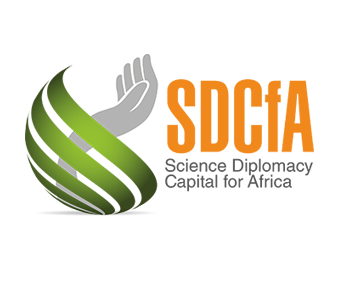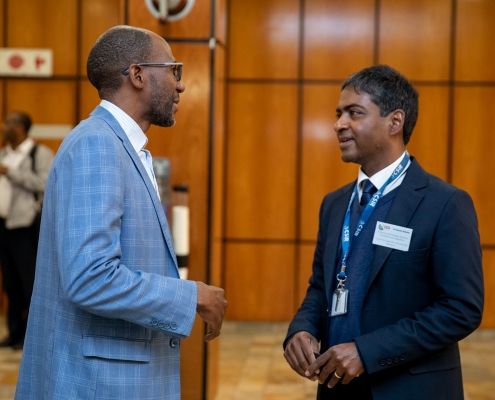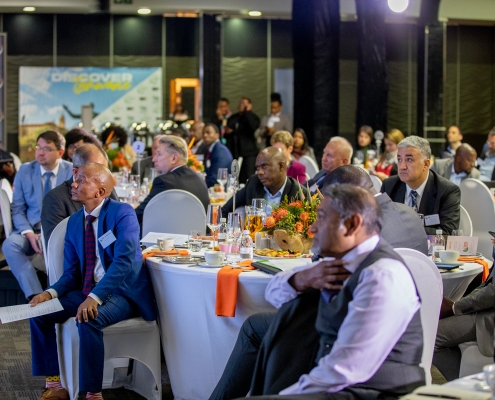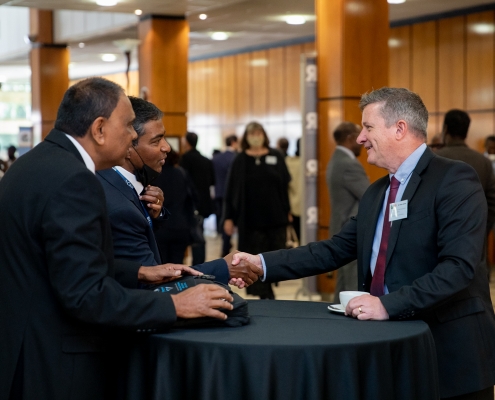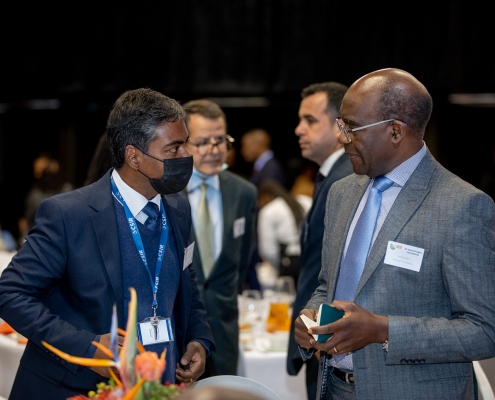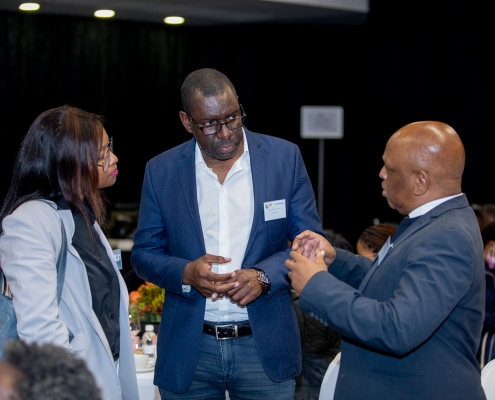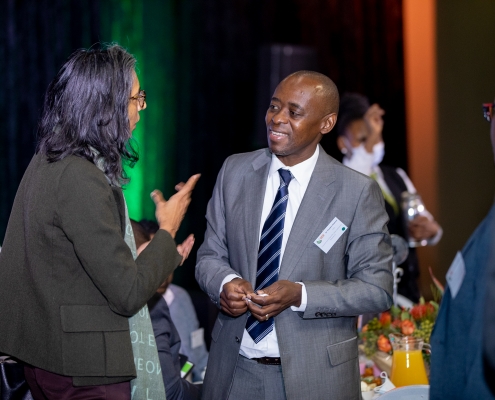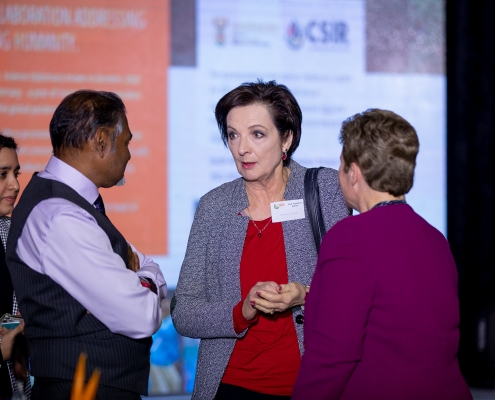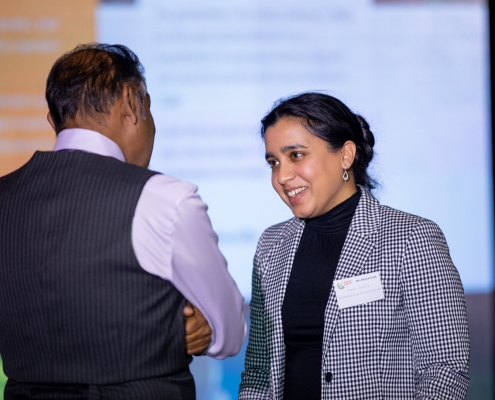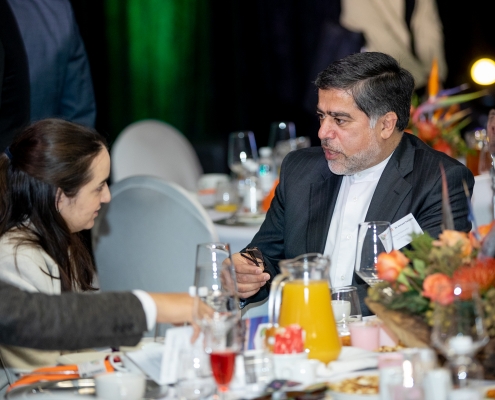8 July 2022
LAUNCH OF THE SCIENCE DIPLOMACY CAPITAL FOR AFRICA INITIATIVE
Friday, 8 July 2022 marked the launch of the Science Diplomacy Capital for Africa initiative at its meeting hub, the CSIR International Convention Centre.
34 countries were amongst the 165 guests that included the Dean of Diplomatic Corps in South Africa, the Ambassador of Eritrea. Africa was represented by Ambassadors and other representatives from Algeria, Botswana, Burkina Faso, the Central African Republic, Egypt, Eritrea, Kenya, Morocco, the Republic of Congo, Somalia, South Africa, and Zimbabwe.
Guests were welcomed by the CEO of the CSIR, Dr Thulani Dlamini, and the opening remarks by the Minister of Higher Education, Science and Technology, Dr Blade Nzimande, were presented by the Programme Director, Mr Daan du Toit. The launch of the SDCfA coincided with the Minister being in Paris on Friday 8 July as part of the programme of UNESCO’s global launch of the International Year of Basic Sciences for Sustainable Development.
Following an introduction to the Science Diplomacy Capital for Africa initiative, speakers addressed the benefits of the initiative from the perspective of multilateral science diplomacy, looking ahead, the continent of Africa, tertiary education, business, young scientists, civil society, the global community, and diplomacy.
Speakers represented the Departments of International Relations and Cooperation, Industry and Competition, and Science & Innovation, the Presidential Climate Commission, the African Academy of Sciences, the Future Africa Institute – University of Pretoria, the Black Business Council, the South African Young Academy of Science, the National Science and Technology Forum, the African Union Development Agency-NEPAD, the United Nations Development Programme South Africa, the United Kingdom of Great Britain and Northern Ireland, and the Chinese Embassy.
The event concluded with the endorsement of the initiative by the City of Tshwane – the host city of the SDCfA.
Given the same day global launch of the International Year of Basic Sciences for Sustainable Development, it is apt that one of the focus areas during the SDCfA’s development phase 2022-2025 is how to add value to the Sustainable Development Goals. Planning and implementation during 2022-23 includes the formation of working groups to identify how value can be added to SDGs 4 and 10 – Education and Reduced Inequalities.
Partnerships are the key to achieving the underpinning aim of the SDCfA initiative – to promote science collaboration across Africa and beyond. Partnerships are the strategic enabler for ‘The Africa we want’. The SDCfA provides the environment to promote multilateral science diplomacy collaboration. It will leverage opportunities during its three-year development phase – opportunities that reconnect technology innovation with humanity,
Taking this initiative beyond 2025 must reinforce its four pillars – inclusivity and transformation that imbed a culture of learning in the context of sustainability and sound long-term governance. All of which reinforce the leitmotiv that we are stronger together – an integral part of South Africa’s new Decadal Plan for Science, Technology and Innovation.
